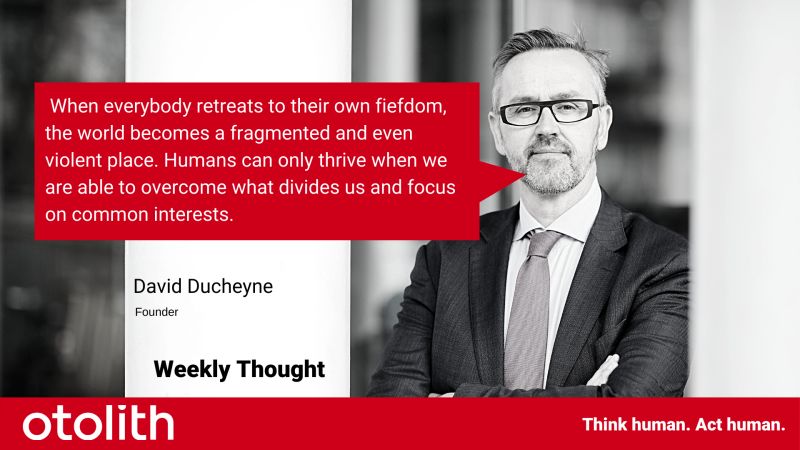#Collaboration is one of the most important and yet most delicate capabilities an organization can develop. Without it, no organization can function, and no society can prevail. Collaboration is together with #leadership (direction) and #learning (change) one of the socles of resilience.
But alas, too often we see collaboration being eroded by systems, structures, and above all mindsets that make people focus on their own interest and their own interest only.
People have a hard time imagining what the value of the output of collaboration will be. Collaboration means that people share their personal assets with others so that together they can achieve more.
And here’s the catch. People may feel that sharing assets is a risk and could lead to a loss, whilst they are unable to see the gains. We all know that people are loss-averted and that the gains are consistently underestimated, especially when these are generated in the distant future.
Short-termism, selfishness, and risk avoidance all lead to less collaboration. People opt for their own targets and do no longer share their assets, or start negotiating and demanding certainties.
To overcome the barriers to collaboration people need to experience trust and meaningfulness.
Some people are givers, others are takers or matchers. The risk for the givers when they engage in collaborative relationships is they get exhausted. The conviction of givers is that giving is a value and that the world would be better off when everybody invests in reciprocal relationships that go beyond transactions and exchanges.
The givers are often disappointed as the world around them thinks differently.
When everybody retreats to their own fiefdom, the world becomes a fragmented and even violent place. Humans can only thrive when we are able to overcome what divides us and focus on common interests. The big and small challenges ahead will only be met when we combine our assets, ideas, thoughts, energy.
Leaders should focus on the development of collaboration in their countries, organizations, and institutions.

